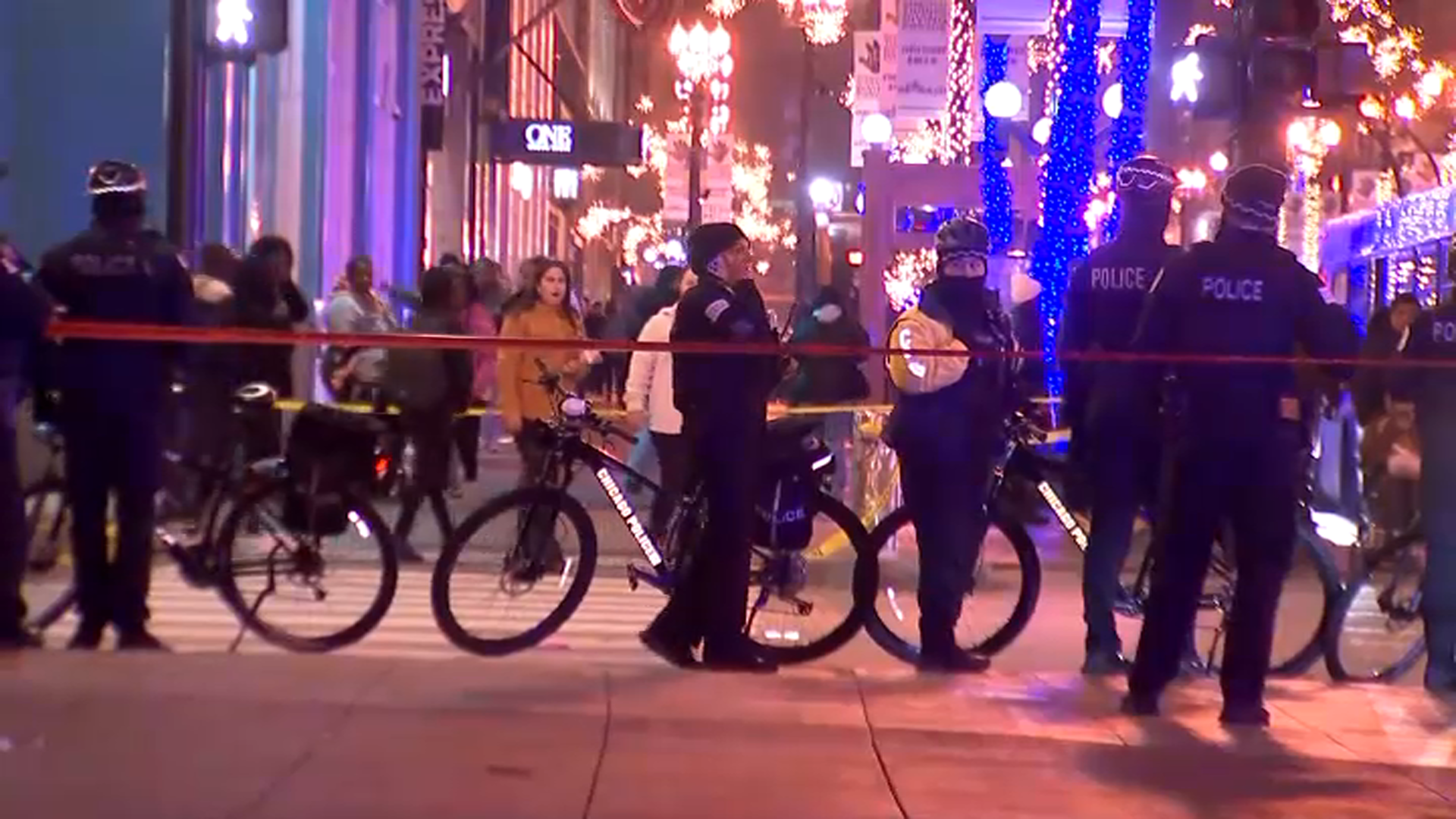Illinois Gov. J.B. Pritzker announced a stay-at-home order lasting until April 7 to stop the spread of coronavirus in the state as the number of cases continues to rise.
Read Pritzker's full public announcement to Illinois about the stay-at-home order, including what will remain open in Illinois, what will close and how the order will be enforced.
HOW HE MADE THE DECISION
As this epidemic has progressed, we've had to make some hard decisions. I'd like to take a minute to give you a window into my decision-making because I think you have a right to know why I've taken the actions that I've taken. You have a right to the truth, as difficult as it may be to hear because you can bear it.
Over the last few weeks, I've reached out to and relied upon some of the best medical experts, epidemiologists, mathematicians and modelers to help me understand what the progression of this disease will look like in Illinois. My bedrock has been to rely upon science, real, actual science around infection rates and potential mortalities. In my discussions with these experts, I've asked for honesty and hard truths. I asked that choices and consequences of those choices be laid out for me as clearly and starkly as possible. I've asked every one of these experts, ‘What action can I take to save the most lives?’ Well, they've come back to me with one inescapable conclusion: To avoid the loss of potentially tens of thousands of lives, we must enact an immediate stay-at-home order for the state of Illinois. So that is the action that I'm announcing today.
WHY A STAY-AT-HOME ORDER NOW
We have looked closely at the trajectory of this virus in countries like Italy and China. Left unchecked cases in Illinois will rise rapidly. Hospital systems will be overwhelmed, protective equipment will become scarce. And we will not have enough healthcare workers or hospital beds or ventilators for the overwhelming influx of sick patients. The only strategy available to us to limit the increase in cases and ensure our healthcare system has capacity to treat those who become ill is to mitigate the spread of coronavirus in the most robust manner possible.
Local
I don't come to this decision easily. I fully recognize that in some cases, I am choosing between saving people's lives and saving people's livelihoods. But ultimately, you can't have a livelihood if you don't have your life. Of all the obligations that weigh on me as governor, this is the greatest. If there are actions that I can take that will save lives in the midst of this pandemic, no matter how difficult, then I have an obligation to take these actions.
HOW LONG WILL ILLINOIS' STAY-AT-HOME ORDER LAST
Therefore, starting tomorrow evening, Saturday, March 21, at 5 p.m. until the end of April 7, all our residents will be subject to a stay-at-home order. There is a great deal of misunderstanding about what a stay-at-home order means. So I want to clarify it for everybody.
WHAT WILL REMAIN OPEN, WHERE CAN RESIDENTS GO
Here's what will stay the same. You'll still be able to leave your house to go to the grocery store to get food. You'll still be able to visit a pharmacy, go to a medical office or hospital or to gas up your car at a gas station. You'll still be able to go running and hiking and walk your dog. Many, many people will still go to work. For the vast majority of you already taking precautions, your lives will not change very much.
There is absolutely no need to rush out to a grocery store or gas station. On Sunday and Monday and Tuesday and every day thereafter, those will be available to you. Agriculture and the press, veterinarians and plumbers, laundromats and banks, roads, bridges and transit: the fundamental building blocks that keep our society safe and steady will not be closing down. You can still pick up dinner from your local restaurant, pick up your prescriptions and just spend time with your family. We are doing all that we can to maintain as much normalcy as possible while taking the steps that we must to protect you.
WHAT WILL CLOSE
That brings me to what will change. All non-essential businesses must stop operating. If you can work from home and aren't already doing so, now is the time when you must. The heroes of this moment, our healthcare workers, first responders, law enforcement officers, and the individuals and organizations like the Illinois, AFL-CIO and other workers who keep our grocery stores and pharmacies running, cannot stay home. We need you.
This executive order is fundamentally about the rest of us and what we can do to support the people on the front lines of this fight and the people most vulnerable to its consequences. We know this will be hard, and we're looking at every tool that we have to help you through this crisis. For our essential workers, we're going to make sure you have safe daycare to take care of your children while you do the critical work, to save us and to keep us safe.
HOW THE STATE OF ILLINOIS WILL HELP DURING THE ORDER
To those that we are asking to stay home, we're ordering municipalities across the state to halt all evictions. We need our local leaders to help ensure our families do not lose their homes. I'm also directing additional resources to organizations across the state to serve those experiencing homelessness. For our students, your school districts will continue to provide you with meals, and we will back them up in this.
HOW LONG WILL SCHOOLS REMAIN CLOSED
I wish I could stand up here and tell you when your schools will safely reopen. But that is not an answer that I have at this time. We're postponing our tentative reopening date statewide until April 8 and will continue to update you with new information as we have it.
ENFORCEMENT, NEXT STEPS
To be honest, we don't have the resources, the capacity or the desire to police every individual's behavior. Enforcement comes in many forms and our first and best option is to rely on Illinoisans to be good members of their communities and good citizens working together to keep each other safe. I've instructed law enforcement to monitor for violations and take action when necessary. But that is not an option that anyone prefers. The easy thing to say today is that soon everything will go back to the way it was. But I want to be honest with you about that, too. We don't know yet. All the steps we are going to have to take to get this virus under control.
But here's what I do know. About 150 years ago, the city of Chicago burned to the ground. When the ash is cleared, we pass laws requiring buildings to be built with fireproof material. We invented skyscrapers. Chicago went from a small Midwest town to one of the biggest cities in the United States. And just to make a point, we built the Chicago Fire Academy on the very spot where the Great Chicago Fire started burning. In the coming days and weeks, we're going to expand testing in Illinois to figure out how to detect COVID-19 more quickly and more efficiently. Our scientists and our doctors are working on treatments even now. They will screen people more effectively, isolate them more quickly and attack this more efficiently. They're going to learn and as they learn, they're going to innovate.
They're already on a path to develop a vaccine. Our healthcare infrastructure will adapt because it must. This will not last forever. However, it's going to force us to change, but that's okay. Any event of this magnitude should force us to change. We here in Illinois have overcome obstacles before and will do so again. And we will rise to this occasion.



